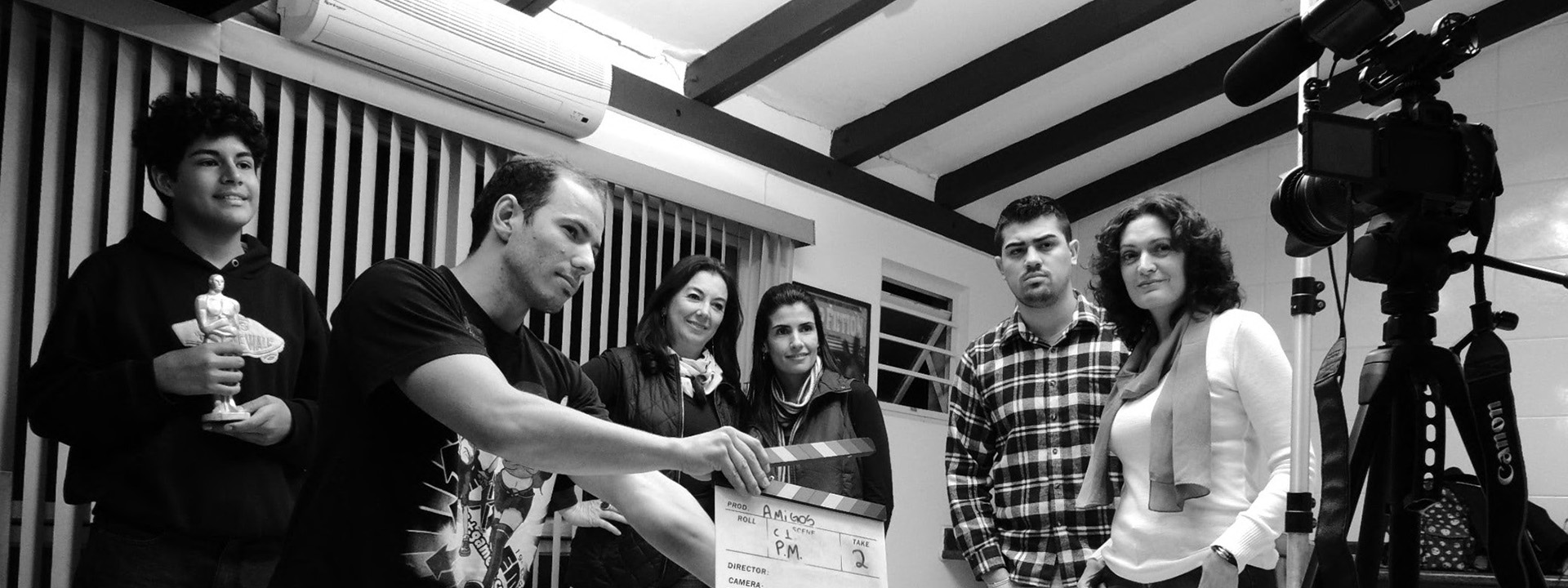
Actor Job Description
What is a Actor Professional?
An actor is a person who plays a character in a performance. The word "actor" comes from the Latin word "actorem", which means "doer". An actor performs in various media, including film, television, theatre, and radio. Actors are typically trained to develop their craft through schools and programs offering dramatic arts or performing arts degrees. However, not all actors have formal training - some may have developed their skills through practice and experience alone. While an actors primary job is to interpret a character for the audience, there are many other facets to the job that must be mastered in order to succeed. These include memorizing lines, understanding blocking (the specific movement of actors on stage), developing vocal techniques for different styles of dialogue delivery (e.g., Shakespearean prose versus contemporary naturalism), mastering stage combat if applicable, as well as being able to work with directors , fellow cast members , producers , crewmembers , etc.. Being successful as an actor requires more than just talent - it also takes dedication, hard work ethic and perseverance

What does a Actor Expert do?
It can be rewarding both personally and professionally satisfaction wise , but it is also a notoriously difficult path full of rejection before one hits it big . But for those passionate enough about acting, pursuing this tough career choice likely leads them towards unforgettable experiences and moments onstage or onscreen that make everything worth going through.

What are the Skills of a Actor?
Actors need to have a wide range of skills and experience in order to be successful. They must be able to memorize lines, learn new material quickly, and understand complex characters. They also need to feel comfortable performing in front of an audience and handling feedback from directors and producers.

What makes an Expert Actor?
Additionally, actors need to have strong networking skills so that they can connect with industry professionals who can help them get work. Finally, it is helpful if actors have some previous experience performing on stage or screen, as this will give them a better understanding of how to handle themselves under pressure.

What level of Experience & Qualifications are required to be a Actor?
Industry Experience: Previous performance experience in a professional or amateur production, such as theatre, film, television, commercials and/or voice-over work. • Training: Acting classes to build technique and hone craft; private coaching for auditions & industry readiness; workshops with established professionals within the industry. • Qualifications: Knowledge of different acting styles (classical Greek tragedy to contemporary comedy); ability to take direction from directors and producers; excellent communication skills both verbal & non-verbal (including body language). • Education: Bachelors degree in Drama or Theatre Arts preferred but not essential depending on other qualifications.

What is the Salary of a Actor?
A junior actors salary expectations can vary greatly depending on the type of project, the size of their role, and whether they are union or non-union. For a small supporting role in an independent film, a junior actor could expect to make anywhere from $100 - $500 per day with no residuals (payments made after initial shooting has been completed). On larger budget films and television shows where actors belong to unions such as SAG AFTRA or Equity, daily rates for smaller roles start at around $125/day for live action projects and up to about $400/day for voiceover work. At the intermediate level when an actor is starting to get more recognition from casting directors but still isnt considered “name” talent yet they may be able to command higher paydays ranging between$750-$1500 per day under union contracts plus additional compensation through residual payments. This range applies mainly towards TV series regulars who have become recognizable faces within the industry. For senior actors who have achieved significant success in either film or television their salaries can reach into six figures depending on how big a name they are perceived as being by producers and studios. In some cases these top tier performers can earn upwards of seven figures if it is determined that having them attached will significantly increase box office sales due to fan appeal which translates into greater returns on investment down the line .

What are the Working Conditions for a Actor?
General working conditions for an actor can vary widely from job to job and even within the same production. Generally, actors are expected to arrive on set or at a theater in plenty of time to go through makeup, rehearsals, and any other necessary preparations before shooting or performance begins. Depending on the type of production, actors may be required to work long hours during filming with breaks that typically last no more than 10 minutes. Rehearsal periods can also be demanding and require dedicated time away from family and friends if they interfere with regular day-to-day life activities such as school or another job. Actors must also expect frequent travel depending on where their productions take place; this could include domestic locations like New York City or international ones like London. In terms of pay structure, most actors are paid per project rather than by hour - although some union rules stipulate minimum wage requirements regardless of whether payment is done hourly or not - so its important for them to ensure they have sufficient funds saved up between projects when possible in order accommodate survival costs (rent/mortgage payments etc.). Additionally, many contracts now include rider clauses which protect rights such as overtime reimbursement should there be excessive delays due unforeseen reasons beyond control while filming/performing is active . Finally , since acting requires physical exertion often times safety regulations will come into play (i.e stunt work) requiring extra precautions taken prior & after each shoot .

What are the roles and responsibilities of a Actor?
To memorize lines and deliver them flawlessly
To understand the character they are portraying and inhabit that person fully
To create a believable, three-dimensional character for the audience to invest in
To make strong choices while staying true to the vision of the director/writer
To be physically expressive and use their body language effectively to communicate emotions or ideas
currency;
off book;
on Camera Technique & Types
Improvisation
Vocal Projection
Acting Styles
Subtext
Cold Reading
Emotional Recall
Listening Skills
Taking Direction
Being Prepared
Conflict Resolution
Building Rapport
Communicating with Casting Directors

Where can I find Actor jobs?
- Create a profile on gigexchange and promote your Actor skills to advertise you are Open to New Work Opportunities
- Ensure your Resume (or CV), or online work profile is up to date and represents your skills and experience. Ensure your reputation reflects your ability & attitude.
- Apply for Actor Jobs advertised on gigexchange.
- Practise Actor interview techniques to ensure you represent your personality and ability succinctly and confidently.
- Accept the job offer if the salary meets your expectations and the employer mission and purpose reflects your core values.
Jobs
What are the best job boards for Performer jobs?

How can I hire Actor staff online for my business?
The best job board for recruiting Actor experts is gigexchange.com. Advertise full-time, part-time or contract jobs to find, hire & recruit trusted, experienced and talented Actor candidates near you.

Are Actor roles in demand in 2026?
Actor experts are still in high demand in 2026. If you are an experienced Actor or looking to train and become one. The job market is looking strong for Actor jobs near me.